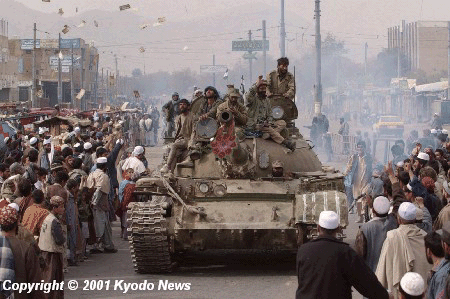NATO Leaders Agree to Exit Strategy for Afghan War
May 22, 2012
An historic plan for winding down NATO combat operations in Afghanistan was approved on May 21 by leaders of the 28-member military bloc meeting in Chicago. The plan, advanced by United States President Barack Obama, maps out an “irreversible” transition under which Afghan forces are to take control of all security operations in their country during 2013 and most NATO forces are to withdraw by the end of 2014. After 2014, any remaining NATO personnel will serve only in training, advisory, or assistance roles. The pact marks a major milestone in the Afghanistan War, which began in 2001 in response to attacks on the United States by al-Qa`ida. At that time, al-Qa`ida was based in Afghanistan, which was controlled by the Taliban, a militant Islamic group.
Questions about long-term funding for Afghan security forces remain unresolved. The United States is pressing its allies to contribute at least $1.3 billion of the $4 billion needed annually to support a replacement army of 230,000 Afghans. However, the current European Union economic crisis is constraining Europe’s ability–and willingness–to contribute funds to sustain both the Afghan military and NATO security backup. Newly elected French President Francois Hollande said France would not contribute additional funds to compensate for the early withdrawal of its troops by the end of 2012, two years earlier than originally planned.

Afghans cheered the arrival of Northern Alliance rebel troops in Kabul, Afghanistan's capital, on Nov. 13, 2001. Northern Alliance and United States military forces drove the oppressive Taliban regime out of the city. (Koji Harada, Kyodo News International)
Military and political leaders at the summit expressed concerns about the ability of an independent Afghan military to resist the Taliban, which President Obama admitted remains a “robust enemy.” An advisor to British Prime Minister David Cameron also commented on the risk that al-Qa`ida could replace NATO troops in regions where the Afghan government has little control.
Additional World Book articles:
- Afghanistan 2001 (a Back in Time article)
- Afghanistan 2002 (a Back in Time article)
- Crisis in the Eurozone (a special report)


